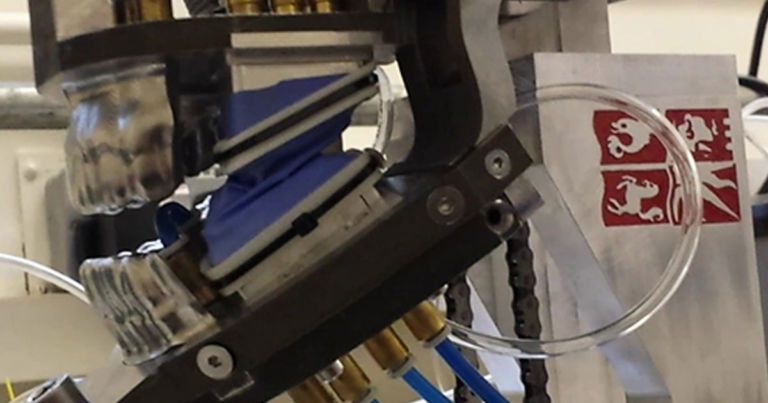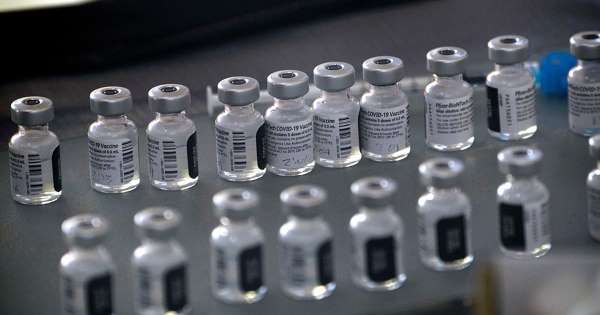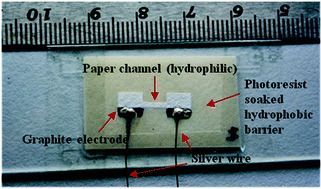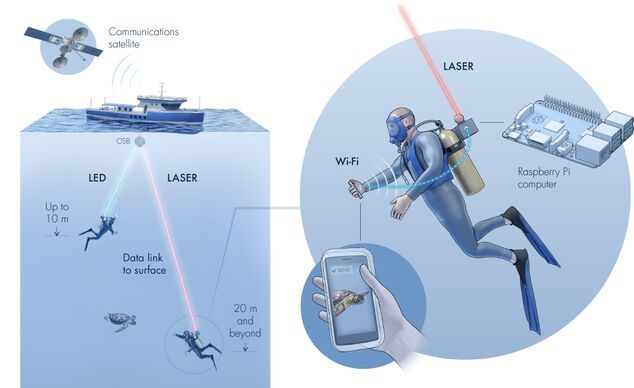Turns out it’s just as good as chomping on gum as a human.



The prospect would effectively double the number of vaccine doses available and allow more people to be vaccinated quickly. But the idea has set off a debate, with experts saying there isn’t enough evidence yet to justify a single dose and people should plan to get two doses.
The push in favor of exploring the idea of a single-dose vaccine crystallized with a recent New York Times op-ed from Michael Mina, an immunologist at the Harvard T.H. Chan School of Public Health, and Zeynep Tufecki, a sociologist who has written extensively on the pandemic.
They called for immediately starting a new clinical trial to study whether one dose of the vaccine is sufficient. They cited data from the trials already conducted for the Pfizer and Moderna vaccines that showed protection began after the first dose, with as much as around 90 percent efficacy, compared to around 95 percent efficacy after two doses.
The Russian armed forces’ modernization drive is in full swing, with multiple new weapons entering service and mass production in the coming year and beyond. Here’s a look at some of the new hardware.
In 2021, Russia’s Strategic Missile Forces will receive the new RS-28 Sarmat – liquid-fueled, MIRV-equipped heavy intercontinental ballistic missiles that will replace the R-36M2 Voevoda systems.
Sarmat can effectively hit targets within 18000 km, which is enough to reach virtually anywhere on Earth. In addition, the missile has a short boost phase, which makes it hard for a potential adversary’s air-defense systems to intercept it midcourse.

Hydrogen is a clean energy source that can be produced by splitting water molecules with light. However, it is currently impossible to achieve this on a large scale. In a recent breakthrough, scientists at Tokyo University of Science, Japan, developed a novel method that uses plasma discharge in solution to improve the performance of the photocatalyst in the water-splitting reaction. This opens doors to exploring a number of photocatalysts that can help scale-up this reaction.
The ever-worsening global environmental crisis, coupled with the depletion of fossil fuels, has motivated scientists to look for clean energy sources. Hydrogen (H2) can serve as an eco-friendly fuel, and hydrogen generation has become a hot research topic. While no one has yet found an energy-efficient and affordable way to produce hydrogen on a large scale, progress in this field is steady and various techniques have been proposed.
One such technique involves using light and catalysts (materials that speed up reactions) to split water (H2O) into hydrogen and oxygen. The catalysts have crystalline structures and the ability to separate charges at the interfaces between some of their sides. When light hits the crystal at certain angles, the energy from the light is absorbed into the crystal, causing certain electrons to become free from their original orbits around atoms in the material. As an electron leaves its original place in the crystal, a positively charged vacancy, known as a hole, is created in the structure. Generally, these “excited” states do not last long, and free electrons and holes eventually recombine.

German scientists are researching a method to produce hydrogen using light and photoactive compounds on an organic chemical basis.
Hydrogen is considered to be one of the alternative energy sources of the future. So far, however, the costly and energy-intensive production process has been a major problem with regard to the environmental friendliness of this substance, which is in itself CO2 neutral. For this reason, increasing numbers of scientists around the world are researching other methods of producing hydrogen: from algae, for example. (IO reported). Scientists in Germany at the Friedrich Schiller University, the Leibniz Institute for Photonic Technologies (Leibniz IPHT) and the University of Ulm have taken inspiration from nature for their method of producing hydrogen.
To do so, the team from the “CataLight” Collaborative Research Center at the Universities of Jena and Ulm has combined new organic dyes with non-precious metal catalyst molecules that release gaseous hydrogen in water when irradiated with light. This substitute has shown a remarkable impact in terms of longevity and effect after excitation by visible light, they write in their study, published in Chemistry – A European Journal.
Photosynthesis as inspiration
In nature, sunlight is most effectively stored in chemical bonds through photosynthesis, because the light-collecting and reactive complexes in the thylakoid membrane are fixed in chloroplasts. The researchers led by Prof. Felix Schacher have achieved this type of arrangement with the help of polymers that interact with both hydrophilic and hydrophobic substances. These charged, so-called graft copolymers are produced artificially.

We exploit the combinatorial advantage of electrokinetics and tortuosity of a cellulose-based paper network on laboratory grade filter paper for the development of a simple, inexpensive, yet extremely robust (shows constant performance for 12 days) ‘paper-and-pencil’-based device for energy harvesting applications. We successfully achieve harvesting of a maximum output power of ∼640 pW in a single channel, while the same is significantly improved (by ∼100 times) with the use of a multichannel microfluidic array (maximum of up to 20 channels). Furthermore, we also provide theoretical insights into the observed phenomenon and show that the experimentally predicted trends agree well with our theoretical calculations. Thus, we envisage that such ultra-low cost devices may turn out to be extremely useful in energizing analytical microdevices in resource limited settings, for instance, in extreme point of care diagnostic applications.

Scientists at Lehigh University are developing a tiny generating plant, housed on a silicon chip, that they believe can produce enough hydrogen to run power-consuming portable devices.
The amount of hydrogen produced was small, but it was enough to demonstrate that the Lehigh project is feasible. Given time the Lehigh group believes they will develop a working generating plant, housed on a silicon chip that produces sufficient quantities of hydrogen to run different types of power consuming portable devices.
‘About 10 years ago people starting thinking: ‘can we take the same fabrication methods for silicon chips and instead of using them for electronics, use them for something else? said Mayuresh Kothare, assistant professor of chemical engineering.
I saw an ad for a tiny chip 1 that provides 5 volts 2 of isolated power: You feed 5 volts in one side, and get 5 volts out the other side. What makes this remarkable is that the two sides can have up to 5000 volts between them. This chip contains a DC-DC converter and a tiny isolation transformer so there’s no direct electrical connection from one side to the other. I was amazed that they could fit all this into a package smaller than your fingernail, so I decided to take a look inside.
I obtained a sample chip from Texas Instruments. Robert Baruch of project5474 decapped this chip for me by boiling it in sulfuric acid at 210 °C. This dissolved the epoxy package, leaving a pile of tiny components, shown below with a penny for scale. At the top are two tiny silicon dies, one for the primary circuitry and one for the secondary. Below the dies are two magnetized ferrite plates from the transformer. To the right is one of five pieces of woven glass fiber. At the bottom is a copper heat sink, partially dissolved by the decapping process. 3.

Doses of monoclonal antibodies—Covid-19 therapies authorized for emergency use last month—are sitting unused in hospital pharmacies, even as cases surge across the country.
Hospitals say the rollout of the therapies has been stunted by a lukewarm response from infectious-disease specialists, who say they want more clinical trial data before using them on a regular basis. Medical centers are also grappling with a lack of awareness and interest from both the primary-care doctors who would normally prescribe the drug and patients who are offered it. And some places are dealing with a shortage of space and staff to administer the therapies.
When monoclonal antibody therapies from Eli Lilly & Co. and Regeneron Pharmaceuticals Inc. were approved for emergency use in November, health agencies were worried there wouldn’t be enough supply to meet demand. Now, health-care providers are administering just 20% of the doses they receive each week, according to officials with Operation Warp Speed, the federal initiative to support development of new drugs, vaccines and diagnostics for Covid-19.

No escape.
Checking your notifications on a dive or live-streaming from the reef may not be such a far-off reality thanks to an underwater internet dubbed “Aqua-Fi.”
Developed by researchers at the King Abdullah University of Science and Technology (KAUST) in Thuwal, Saudi Arabia, Aqua-Fi uses a combination of lasers and existing computing technology to connect devices to the internet more than 30 feet underwater.
With the new technology, researchers were able to place a brief Skype call from a waterproof smartphone, using a standard Wi-Fi signal to connect to an underwater modem.